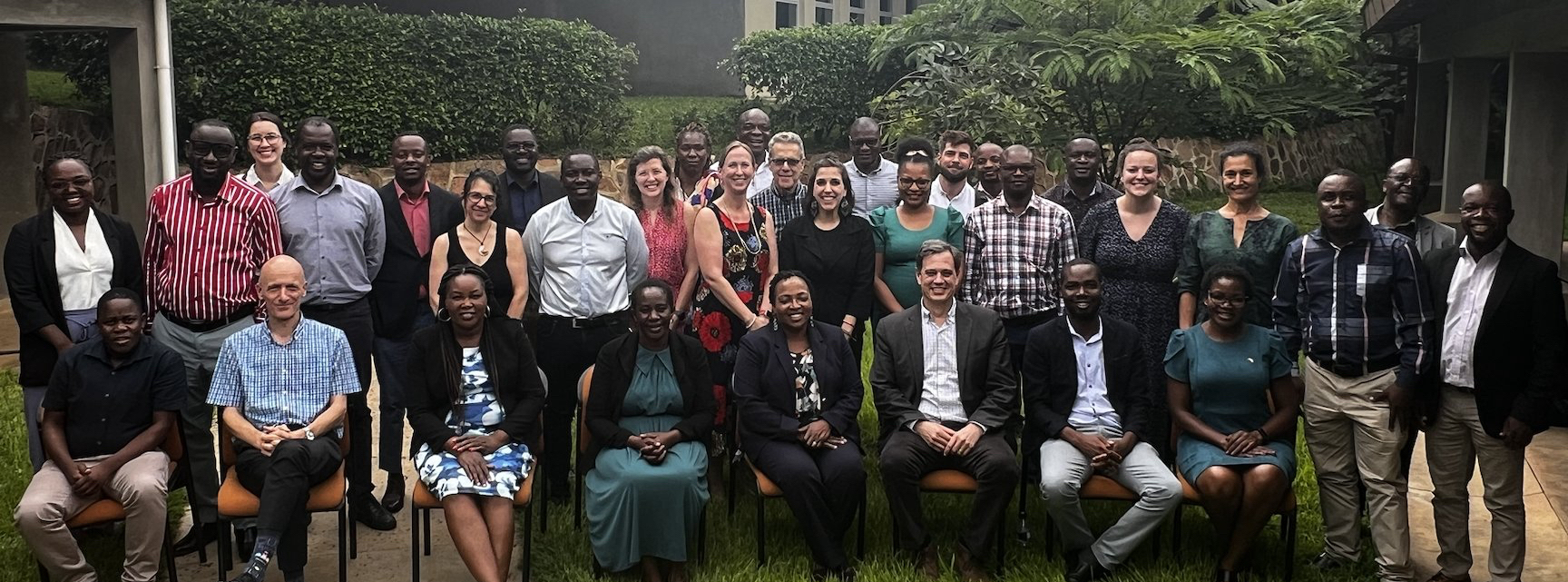Georgetown’s Center for Innovation in Global Health, in Partnership with the Government of Malawi, Leverages Emerging Tools To Accelerate an End to National HIV Epidemic

Posted in News Release | Tagged global health, HIV, long-acting PrEP, Malawi, population health, preventive medicine, research
Media Contact
Karen Teber
km463@georgetown.edu
WASHINGTON (July 18, 2023) — Georgetown University’s Center for Innovation in Global Health (CIGH) — a joint initiative of Georgetown University Medical Center and the O’Neill Institute for National and Global Health Law — in partnership with the Republic of Malawi’s Ministry of Health, announces a new three-year, $15.3 million public-private partnership to expand availability of a highly effective novel drug to prevent HIV. The announcement is being made on the eve of the 12th International AIDS Society HIV Science meeting in Brisbane, Australia, where further details about the groundbreaking effort will be presented.
Together with leadership from the Ministry of Health, CIGH Director Charles Holmes, MD, and his team will advance research and policy toward nationwide scale-up of long-acting injectable pre-exposure prophylaxis (PrEP) drugs to prevent HIV. The Malawi Injectable PrEP Path-to-Scale (“PathToScale”) Initiative, which will be formally launched in Malawi later in 2023, is the result of a year-long government-led consultation that has shaped Malawi’s approach to these innovative new products. The resulting studies will answer pressing local and global questions and support policy development that strengthens the global HIV response.

The introduction of long-acting PrEP will be funded through a series of three grants to CIGH from the Bill & Melinda Gates Foundation, and will support market access efforts, including introduction planning, market segmentation, financing, supply chain, large-scale implementation science studies and policy formation. It will bring an injectable PrEP drug, long acting cabotegravir (CAB LA), to 10,000 people across diverse population groups and delivery channels in 36 sites in Malawi’s capital city of Lilongwe and commercial center, Blantyre, making it the largest such study being conducted globally. Drug supplies will be provided by the U.S. President’s Emergency Plan for AIDS Relief (PEPFAR) through an agreement with ViiV Healthcare.
Unlike oral PrEP, which has been available for over a decade and is taken as a daily pill, CAB LA PrEP is administered as an intramuscular injection every two months. Clinical trials have shown that CAB LA PrEP is highly effective and safe in preventing HIV, with an estimated 79% reduction in risk and a lower rate of drug resistance than daily oral PrEP. Since CAB LA PrEP is more long-lasting and discreet, it is expected to address the ongoing challenges of stigma, side effects, and the burden of daily medication.
The scale-up of CAB LA will leverage Malawi’s successful Blantyre Prevention Strategy (BPS), a three-year old government-led effort that has developed a more coherent and effective health systems approach to HIV prevention. BPS has resulted in elevated subnational public health leadership and strengthened local decision-making. Its district-embedded data systems, community-engagement, quality improvement and structural interventions will be critical to an effective programmatic introduction of CAB LA PrEP. BPS is overseen by the Malawi Secretary for Health and supported through a grant to CIGH.
“We are grateful for the opportunity to continue working in close collaboration with the government of Malawi, our many talented local and global collaborators, PEPFAR, and the Bill & Melinda Gates Foundation, all of whom have contributed to ensuring this cutting-edge work is maximally impactful for Malawi’s health system,” said Holmes, professor of medicine at Georgetown University School of Medicine. Holmes previously served as chief medical officer and deputy U.S. global AIDS coordinator at PEPFAR and as CEO of CIDRZ in Zambia. “Creating a pathway to scale for innovative new tools like injectable PrEP for HIV is critical for reaching those most vulnerable to HIV and ending the HIV epidemic.”
Dr. Rose Nyirenda, director of HIV/AIDS Department, Ministry of Health, further notes that “Malawi has significantly expanded access to HIV services over the last two decades — having led a 70% decrease in AIDS-related deaths since 2010 — and has been a leader in HIV science. We are excited to lead this effort on behalf of the Republic of Malawi, and we’re pleased to work closely with our local experts and CIGH to expand access to this effective and safe new medicine to prevent HIV infection. We hope these efforts will serve as a model for other countries as they work to reach their 2030 health goals.”
“The foundation is excited to extend this funding to the Government of Malawi and Georgetown’s Center for Innovation in Global Health,” said Dr. Yogan Pillay, director of TB & HIV Delivery at the Bill & Melinda Gates Foundation. “Injectable PrEP is an important new tool for HIV prevention. We are committed to learning how best to deliver this safe and effective medication at scale and to supporting innovative approaches to ending the HIV epidemic in Malawi and beyond.”
Other critical collaborators for this effort include the Pakachere Institute for Health and Development, Lighthouse Trust, Centre for the Development of People, UNC Malawi, Johns Hopkins Bloomberg School of Public Health, Cooper/Smith, Family Health Services, Partners in Hope, PSI, and UCSF Healthqual, among others.
Holmes serves as an advisor to the Gates Medical Research Institute.
